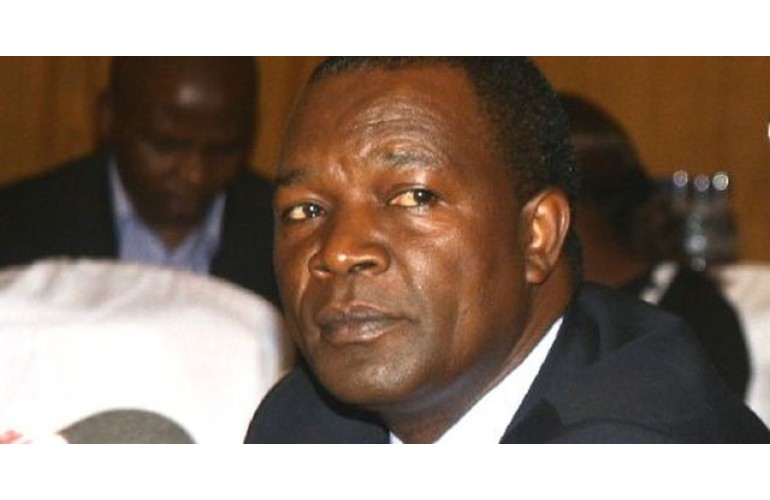 Subscribe
Subscribe- Login
-
/
Sign Up
- US Black Engineer
- >>
- Articles
- >>
- World News
- >>
- Africa
- >>
- Central Bank expert wants to harness Africa’s digital potential
|
Getting your Trinity Audio player ready...
|
Njuguna Ndung’u, a former governor of the Central Bank of Kenya, enabled the country’s first mobile money transfer service. M-Pesa, as it is known, has become the most popular financial platform in the east African country.
During his time as Visiting Fellow of Practice at the Global Economic Governance program of the Oxford University School of Government, Ndung’u advised a joint Economic Social Research Council and Department for International Development project that investigates the impact of financial regulation on low-income countries.
In a new report from The Africa Growth Initiative at Brookings, Ndung’u shares his career insights in an essay “New tools for a new age” as he offers recommendations on realizing Africa’s digital potential.
Below are excerpts from the chapter.
In 2018 and beyond, digitization will provide an important avenue for African economies to leapfrog not only financial development but also development across other sectors of the economy. There are infinite opportunities on the digital platform.
Digitization is transforming African economies in four major ways: retail payments systems, financial inclusion, sustainable business models, and revenue administration. Given that Kenya has stood out in its success in pursuing and utilizing digitization, the experiences of the country, explored in this essay, shed light on Africa’s digitization potential in 2018 and beyond.
The entry point of digitization has been through the telecommunications sector, given the diverse products available on the mobile phone and its replication capability across countries.
Products like M-Akiba for micro-investors in government securities, M-KOPA for solar energy supply, and the One Acre Fund program in agriculture are making a difference outside the financial sector.
Since 2014, One Acre Fund has enabled farmers in Kenya to make loan repayments digitally using M-Pesa instead of cash. The loan product offers farmers flexible repayments with no repayment schedule on the M-Pesa platform: Borrowers can pay as little or as much as they want at any time and can complete repayment by the final deadline.
Launched in March 2017, M-Akiba is a micro-investment in government securities using the mobile phone payments platform. Notably, it is the world’s first mobile-only retail bond. The government aims to borrow KSh 5 billion (approximately $50 million) through the M-Akiba bond to fund government infrastructural development projects with a coupon rate of 10 percent.
So far, 5,691 Kenyans have invested in this product at its initial phase. Thus, digitization has made it possible for micro-savers and micro-investors to participate effectively and efficiently in the financial system.
Through M-Pesa, water dispenser machines are revolutionizing water availability and distribution to the poor slum dwellers that have long been at the mercy of water cartels. The outcome seems to show that with the introduction of this payments platform, unit costs have declined substantially. The weekly expenditure on water in the slum has been reduced from KSh 250 ($2.5) to KSh 2.50 (2.5 cents)—a 100 percent reduction in water costs.
M-KOPA is an innovative solar power solution program that helps low-income consumers acquire high-quality, affordable energy. The M-KOPA inventors developed a proprietary, patented technology platform that combines an embedded global system for mobile communications and mobile phone payments capabilities to facilitate financing of the solar power equipment. As of May 2017, M-KOPA had connected over 500,000 homes to affordable solar power with 500 new homes being added every day.
The estimates from the M-KOPA solar program show that current customers will save up to $375 million over the next four years on energy costs and enjoy 62.5 million kerosene-free months of lighting.
The M-TIBA savings product is a mobile phone-based health wallet that enables one to save, send, and spend funds specifically for medical treatment. Money stored in M-TIBA can only be used to pay for treatment and medication at specific clinics and hospitals. Users are encouraged to save as much as possible so that they are able to pay for healthcare services in full.
Digitization will drive better revenue administration and service delivery: The fourth benefit of digitization is improved service delivery and better revenue administration.
Kenya’s eCitizen digital platform has reduced bureaucracy and improved access to government services. Through the platform, Kenyans apply for Government to Citizen (G2C) services and pay via mobile money, debit cards, and eCitizen agents. The platform provides portals that enable individuals to access government services such as business licenses, permits, and registrations; obtaining driver’s licenses; processing police clearance certificates; searching for official land titles for Nairobi blocks; and applying for passports.
Another lesson from Kenya is that once the whole economy has embraced digitization, it becomes easy to re-examine the payments platform that will support tax design. The principle of an efficient tax system is that it has low costs for collection and less room for evasion. New digital tax payments platforms are efficient and limit physical interaction between the taxpayer and the tax officer.
With increased financial inclusion and more taxpayers having access to banks accounts and financial services touch points, the Kenya Revenue Authority (KRA) introduced electronic banking to expedite payment of taxes through a secure electronic payments platform in 2016.
Download the paper here


